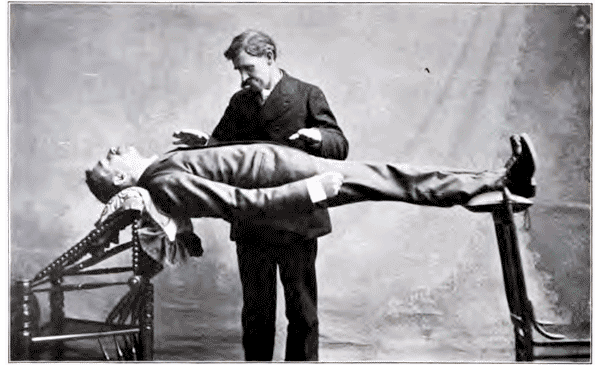
Hypnosis has become very popular over recent years. It no longer carries the old myths and prejudices, and there is now a much greater understanding of this ancient practice.
Hypnosis is NOT a state of deep sleep.
It involves the induction of a trance like state. When in this induced trance the client develops an enhanced state of awareness and is able to concentrate entirely on the voice of the hypnotist. Whilst in this trance, the conscious mind is suppressed and the subconscious mind is exposed.
The therapist is then able to suggest ideas, concepts and the lifestyle changes the client wishes to make in order for them to change and grow. These suggestions, like seeds, then become firmly planted in the subconscious mind.
Hypnotherapy is the practice of promoting healing and positive development; it is therefore a form of psychotherapy.
The aim of hypnotherapy is to re-programme thought processes and patterns of behaviour within the mind, therefore enabling irrational fears, phobias, negative thoughts and suppressed emotions to be overcome.
Once the therapist has introduced a hypnotic trance it enables the body to be released from conscious control. The client’s breathing will become slower and deeper, the pulse rate will become slower and the body’s metabolic rate will decrease.
Similar, more complex changes along the nerve pathways to and from the brain and hormonal channels enable the sensation of pain to become less acute and the awareness of unpleasant feelings such as nausea and indigestion can be alleviated.
Hypnotherapy is now accepted within its field to be the most powerful tool for personal development and positive change.
What can hypnotherapy help with?
Here are just a few examples of the services I can offer:-
Stop smoking, weight management, insomnia, memory, exam worries, motivation, sports & hypnosis, phobias, confidence & self -esteem, stress management, fertility, health, relationships, fear of flying, driving test anxiety, public speaking, post-traumatic stress disorder, irritable bowel syndrome, nail biting, addressing issues & taking action, teeth grinding, comfort eating for emotional reasons, pain management, blushing, stuttering, allergies.
Home visits can be arranged in special circumstances.
Will hypnosis work for me?
Yes, if you want it to.
During a hypnosis therapy session, the client will usually experience a sense of deep relaxation with their attention narrowed down, allowing them to focus on appropriate suggestions made by the therapist.
Hypnosis uses the power of suggestion (made by the therapist during the therapy) to help people to make positive changes within themselves.
During a hypnotherapy session you are always in control and will never be made to do anything you don’t want to do.
How does it work?
Hypnosis works by altering the state of consciousness so that the analytical left-hand side of the brain is turned off, making the right-hand side of the brain more alert. In other words, the conscious control of the mind is temporarily inhibited during a hypnotic trance and the subconscious mind is awoken and aware
In order for the client’s physical state to change, the subconscious part of the mind has to change. (The subconscious mind is a much deeper and instinctive force compared to the conscious mind).
For example, a client who wants to overcome a fear may try everything consciously to overcome it, but, will fail so long as their subconscious mind holds this terror which will prevent the client from succeeding. Progress can only be made if the subconscious mind is reprogrammed so that the deep seated fears, instincts and beliefs are abolished or altered.
What happens in a therapy session?
Firstly, all misconceptions the client may have regarding hypnotherapy should be dispelled.
The introduction technique does not involve the patient being put into a deep sleep and the client cannot be made to do anything they wouldn’t normally feel like doing. They will remain fully aware of their surroundings and situation at all times whilst in a state of hypnotic trance. They are not vulnerable to every given command of the therapist. The most important thing is that the client wants to change some behavioural habit be it addiction or a psychological issue and that they are highly motivated to do so.
The client has to want the treatment to work, it is essential that a good clinical rapport is established with the therapist for it to do so.
The client generally requires several therapy sessions in order to achieve meaningful results, however, the time can vary due to the readiness and ability of the client to actually be hypnotised. Clients can learn the technique of self-hypnosis which can be practiced at home. This will help to reinforce progress in formal sessions with the therapist.
A hypnotic trance is augmented by the therapist who will generally use a relaxation technique by speaking to the client who will focus completely on the therapists voice. Once the trance is induced therapy can begin.
What problems can be treated by hypnotherapy?
Hypnotherapy can be applied to many psychological, emotional and physical disorders. It has, and is used to relieve pain in surgery and dentistry, fertility, pregnancy and childbirth. It can shorten the stage of labour and reduce the need for painkillers.
It can ease the suffering of the chronically ill, the disabled and those with a terminal illness.
It has been shown to help people overcome addictions such as smoking, alcoholism, eating disorders, weight loss. Children are generally easier to hypnotise and can be helped with nocturnal enuresis (bed wetting) and chronic asthma, whilst teenagers can conquer stammering or blushing problems which can otherwise make their lives miserable.
Phobias of all kinds lend themselves well to hypnotherapy and anyone suffering from panic attacks or obsessional compulsive behaviour and stress related problems like insomnia may benefit.
Conditions exasperated by tension such as irritable bowel syndrome, psoriasis and eczema or excess sweating all respond well, even tinnitus and clicky jaws (tempero – mandibular joint dysfunction) can be treated by hypnotherapy.
